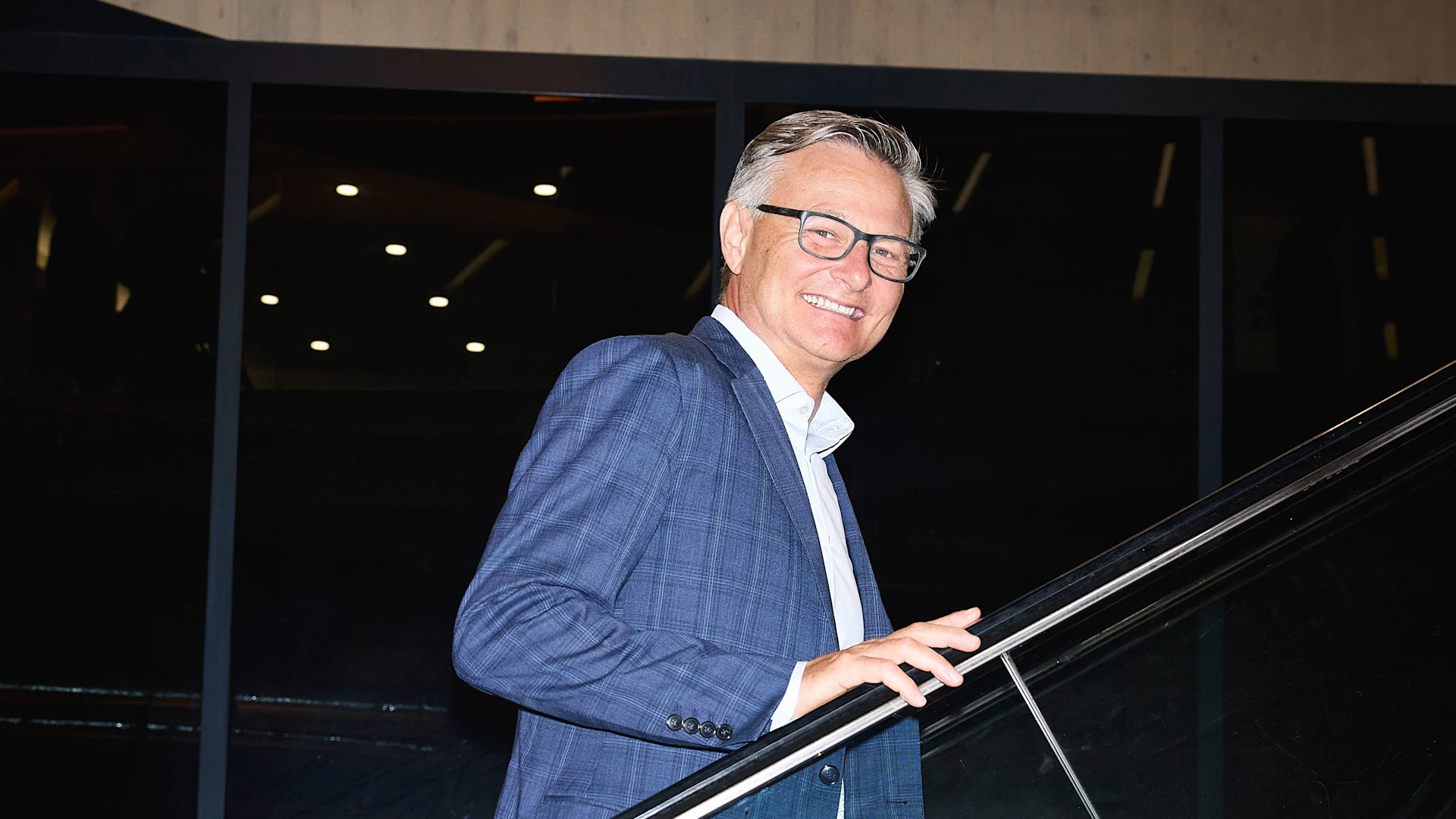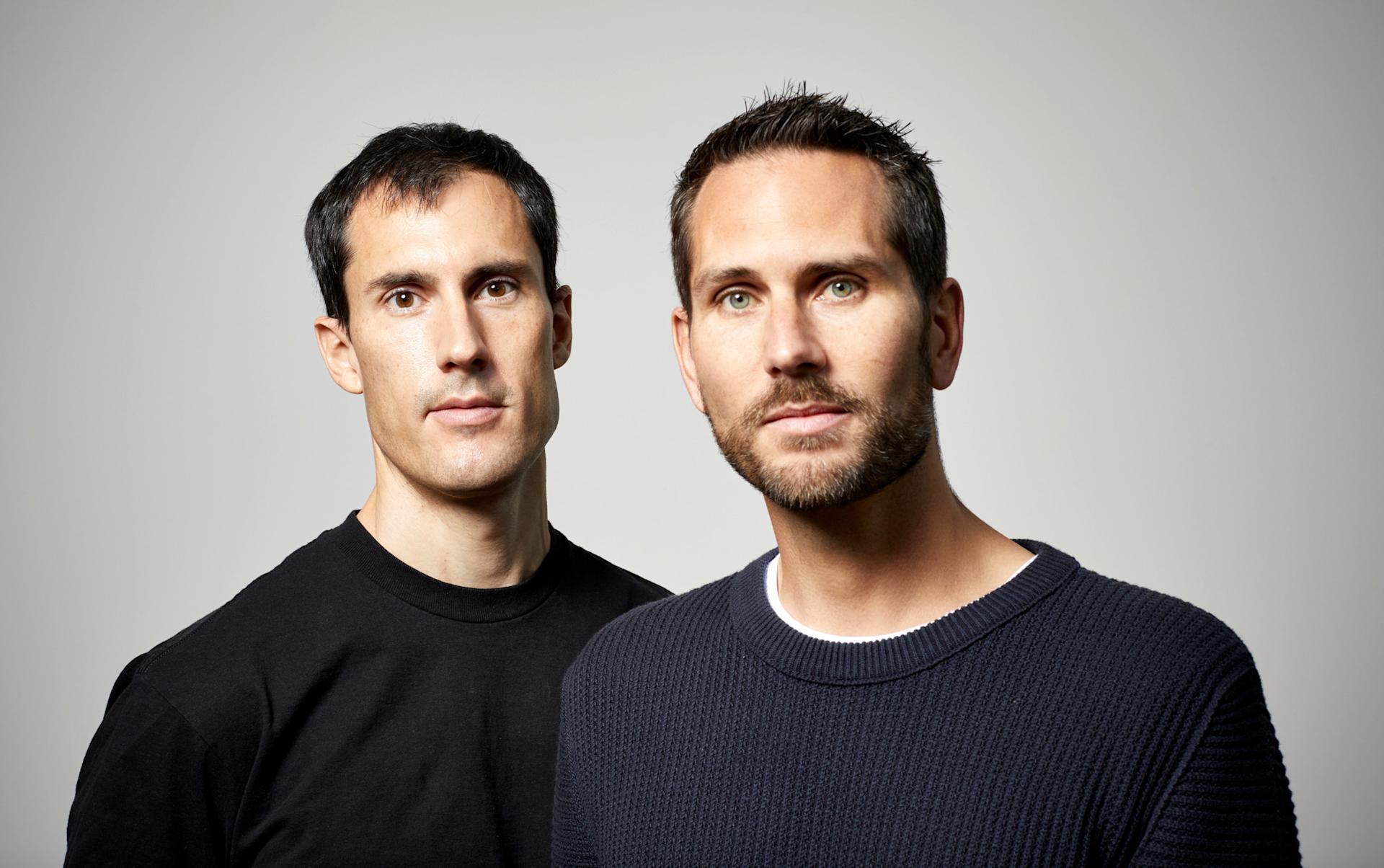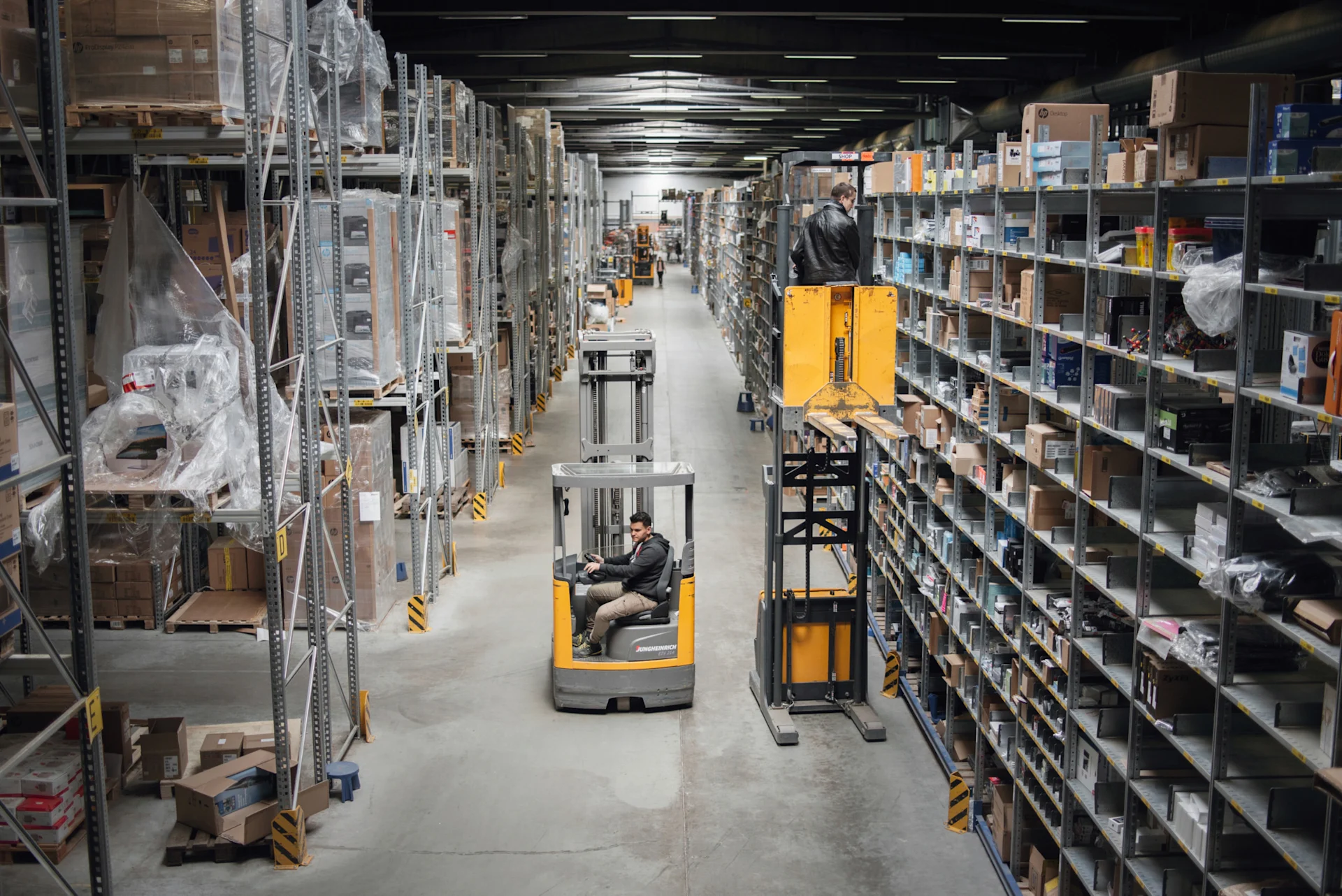
A Switzerland with high quality of life for everyone
In our interview, Mario Irminger outlines the Migros Group’s ambitions for its second century.
navigation

Digitec
The Migros subsidiary Digitec Galaxus launched in May 2001 with the goal of taking over the Swiss online retail market. The two founders, Florian Teuteberg and Oliver Herren, look back at imaginary employees, a treasure chest and tricky moments.
Florian Teuteberg: Quite a bit in terms of our values and our culture: working intensively in small teams, taking decisions quickly instead of postponing them for no reason – these are things we try to maintain. Nevertheless, I find the term «start-up» to be a bit embarrassing in our situation. After all, we have over 2,000 employees. I don’t really like using it.
Oliver Herren: We try to give as many teams as possible the freedom to function like a start-up within the company. Especially when it comes to new projects – we want them to be easy to launch and to make progress quickly.
Florian Teuteberg: At the beginning, we were an extremely small team that covered everything from purchasing to software development and customer service ourselves. All of the feedback came directly to us and we could implement changes immediately. We were able to realise even big ideas in just a few weeks or, at the most, a few months. Due to the complexity, that’s no longer possible today. That’s something I’m still getting used to.
Oliver Herren: That was me. I played around with the words «digital technologies» and ended up with «digitec». Not super creative, but extremely fitting for the field in which we operate.
Both: No.
Oliver Herren: We never specified how the name is supposed to be pronounced. For that reason, there is no «correct» way to pronounce it, and we’re not claiming that there is one.
Florian Teuteberg: That came from Flurin Spring, who is our current Creative Director. We made the first version ourselves in Word.
Oliver Herren: I came up with the «d» in the Zurich font, but without the red corner.
Florian Teuteberg: We didn’t reinvent the wheel. There were already online shops where you could pick things up in person. Our contribution was having a simple shop design where the user could quickly find what they were looking for. We didn’t just put some product lists online; we offered the customer guidance in order to help them find the right product quickly. In 2005, we introduced a true innovation – search filters, which are standard today. That didn’t exist before, and for a long time, we were the only ones in Europe who offered it.
We’re really not that interested in the margins.
Florian Teuteberg: The conscious decision to build our own warehouse. We also took a different tack when it came to brand management: While others put all their focus on discounts and being cheap, we always had great prices, but we didn’t advertise it. In 20 years, we’ve never talked about our prices.
Oliver Herren: We simply wanted to build the best online shop; the one we wanted to see on the market. We enjoyed this product. We didn’t really care much about the margins.
Florian Teuteberg: And since there were only three of us, we were faster than everyone else. We wanted to automate as much as possible, including order processing. Spending hours on the phone with suppliers went against the grain for us. That’s why we started sending automated orders via e-mail all the way back in our early years. That overwhelmed and confused our suppliers. So we invented an imaginary employee, Marco Dren, who was responsible for everything that we couldn’t assign to a real person. Once Marco Dren started sending out orders, our suppliers calmed down straight away. Sometimes field sales employees would call us back and ask to speak to him. Then we would say he’s in the basement. Because that’s where our servers are.
Florian Teuteberg: Our greatest adversary at that time was the Mediamarkt Group in Zurich. They really didn’t like us, and when they realised that we were becoming serious competitors, they put a lot of pressure on manufacturers to stop working with us. And that worked for a while, which forced us to import the same goods from abroad, especially in the area of consumer electronics.
Oliver Herren: Yes, that’s true. Swiss consumers didn’t want to wait.
Florian Teuteberg: At least five years. They weren’t the only ones. Samsung, Philips and Sony also refused to work with us. Or offered us such terrible conditions that they essentially forced us to import products from abroad.
Oliver Herren: This is still the case at Galaxus today. There are still manufacturers who don’t want to sell their goods online.
Both: Yes and yes!
Oliver Herren: I built my last computer and my son’s computer as well.
Florian Teuteberg: It’s not hard.
Florian Teuteberg (laughs): In the beginning, lots of people in the shop would pay in cash, and we threw the coins into a box because the bank would only take banknotes.
Oliver Herren: And at some point, we had to take it to the post office to convert it to banknotes because the box quickly got too heavy.
Florian Teuteberg: Our treasure chest!
Florian Teuteberg: That was at a partner event with Sunrise where we were competing over a considerable advertising fee and we absolutely destroyed them in arm wrestling. The next year, they wanted a rematch, but this time it would be curling. We were feeling very optimistic. If we lost, our Sales team would have to wear t-shirts that were printed with the words «digitec lost». Unfortunately, we lost, and then we had to explain all of this to the employees who actually had to wear the t-shirts.
Oliver Herren: That was our first ticketing system, which only showed two digits. Before Christmas, we had so many customers in the shop that we had duplicates. The person who made it to the cash desk fastest was seen immediately, while the other person would have to wait for a very long time. Afterwards, we switched to three digits.
Florian Teuteberg: The really shocking part was the fact that we had more than 100 people in the shop at one time. That must have been around 2007 or 2008, when our sales figures exploded.

Florian Teuteberg: Constantly. At the beginning, our success was nowhere near as certain as it might seem today. We only really started to pick up speed in 2005.
Oliver Herren: We were young and we had almost no overhead costs. In the first half-year, we didn’t pay ourselves a salary, and afterwards we paid ourselves a very low one.
Florian Teuteberg: There were lots of tricky moments. Moving into our offices in Zurich-West in 2003 was very bold. If our sales had dipped just a little bit back then, we couldn’t have afforded our rent and we would have been done for. We needed to grow With our warehouse space in Kleindöttingen (AG), we also took a pretty big risk. Of course, there were signs that we were succeeding, but we didn’t know, for example, how quickly our competitors would launch their own online shops. Our prices were attractive, but the big players could have easily undercut us.
«We'd never sell things like guns, pornography or fur.»
Florian Teuteberg: 2010/2011 was an extremely critical phase when we rebuilt our shop from the ground up. As a result, we couldn’t make any changes to our old shop for years while our competitors continued to catch up. It was a really delicate situation; our sales and profitability dropped a little as well. That was the moment when Migros stepped in and, in the end, it all worked out. Our margins were always tight, and we made just enough profit to finance our next investments. Most start-ups don’t fail because they don’t make enough profit or grow too slowly, but because at some point they run into liquidity problems. That easily could have happened to us. We weren’t interested in finances; we just wanted to build a cool shop.
Florian Teuteberg: We were actively looking for investors, so we weren’t surprised to get the offer. Naturally, the decision to give up some of our independence was a difficult one. Migros gives us a lot of freedom, but we didn’t know that then.
Oliver Herren: I also had my doubts. Because freedom is so important to us, we came to an agreement with the Administrative Board on parity, and we included it in the contract.
Oliver Herren: «Nearly everything for nearly everyone» is mainly a dig at the industry that claims to always have everything and always have the best of everything. No one always has everything, always has the best of everything or always can offer the lowest price.
Florian Teuteberg: There are limits of course. We'd never sell things like guns, pornography or fur. Otherwise, our stance is that we’re a platform and we allow our community to decide what they think is good or bad.
Both (laugh): Probably not.
Florian Teuteberg: Oli and I have always been very good friends, and we still are. We still spend time together outside of work and with our families. I'm godfather to his daughter and he’s godfather to my daughter. That always has been and is still a great foundation, which is important because sometimes we see things very differently.
Oliver Herren: We still work together closely, but not quite as closely as at the beginning when we did everything ourselves.
Florian Teuteberg: But we still sit next to one another.
Digitec Galaxus was founded in 2001 by three friends – Florian Teuteberg, Oliver Herren and Marcel Dobler (who left the company in 2014). Today, it is the largest online retailer in Switzerland with around CHF 1.8 billion in sales. Migros owns 70 percent of the company and operates both online shops – Digitec and Galaxus – as well as 11 brick-and-mortar Digitec stores in Switzerland.
Florian Teuteberg is the Managing Director of Digitec Galaxus. He is married, has two children and lives in Zurich.
Oliver Herren is the Head of IT at Digitec Galaxus. He is married, has three children and lives in Zurich.
Discover exciting stories about all aspects of Migros, our commitment and the people behind it. We also provide practical advice for everyday life.